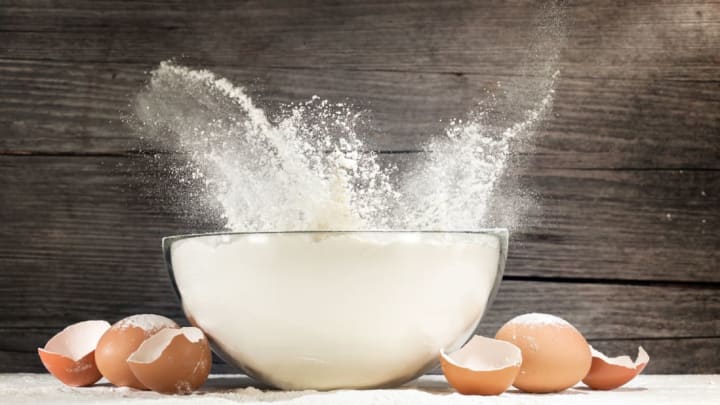Making festive cookies—and licking the bowl—is a time-honored holiday tradition. But while you likely know that raw eggs carry a potential Salmonella risk, it isn't safe to sneak bites of batter even if you opt to use another binding agent. As The New York Times reports, uncooked flour can make at-home chefs ill, according to a new study published in The New England Journal of Medicine.
Authors investigated an E. coli outbreak in late 2015 and 2016 that caused 63 cases of illness in 24 states, and ultimately led to the recall of more than 10 million pounds of General Mills flour and dozens of products that contained the ingredient. They concluded that strains of E. coli bacteria can live in raw flour (in addition to moist food like hamburger meat and produce), and might be more of a widespread health hazard than researchers had previously realized.
"Linking this outbreak to flour was challenging," the report says, according to CNN. "Consumption of raw or undercooked flour is not included on most routine state and national foodborne disease questionnaires, so epidemiologists were not initially able to assess whether case patients had consumed raw flour."
Public health officials ended up having to conduct in-depth interviews with 10 afflicted individuals to identify flour as the culprit ingredient, according to Science News. Sure enough, two of them recalled eating raw cookie dough right before falling ill. Two bags of flour used to make the treats were traced back to the same production plant, and a subsequent analysis located strains of E. coli.
E. coli can stay dormant in flour for months, but re-activates when it's added to eggs, oil, and water. Bakers can avoid infection by heat-treating raw flour, washing their hands with hot water and soap after handling it, or (sorry) by simply not giving into temptation and sneaking a bite of batter mid-baking session.
[h/t The New York Times]
